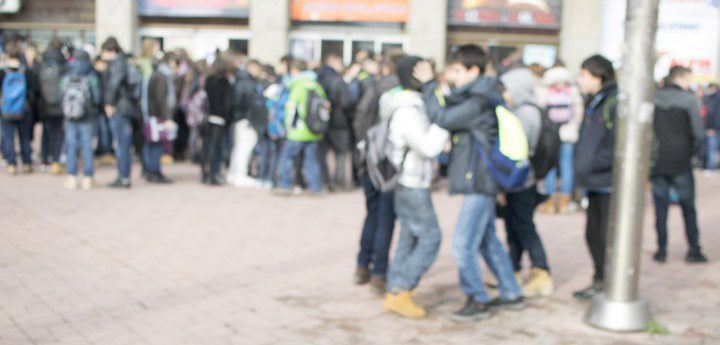Bullying, Posts for Teachers, Press & Online, Schooling & Homework
Schoolyard Violence a Symptom of Modern Teenage Life

This opinion piece ran in The Courier-Mail in September 2009.
This week we have heard about two incidents of school violence, with a group of girls at Ipswich reportedly wielding knives and threatening an attack, and the tragic death of 15-year-old Jai Morcom after a school yard fight.
Adolescence is a time of enormous change and emotional and social upheaval, and sometimes things get out of hand. School violence is nothing new but what’s different about these events is that the chance of violent incidents occurring at school both between students and between staff and students has increased frighteningly. What’s also different is that girls are now almost as likely to commit violent acts as boys.
These incidents are like the canary in the coal mine. It’s time for us all to take notice of some of the toxic influences of the modern world that are creating serious challenges for our children and adolescents.
Many of today’s children are growing up with more time interacting with screens than real people and other children. We can only learn how to be a human being with emotional, social and physical competence through real experiences. Research shows that children who watch too much TV have shorter attention spans, less experience in the natural world and an increased chance of developing a moral code based on repeated programs like soapies. This weakening emotional literacy, when combined with a film world full of senseless, glorified violence and grisly TV programs like CSI, calls us to question what effect this saturation may have on sensitive brains.
Then we have competitive computer games that focus on killing or maiming others and to win at all cost. The brain changes with focused attention, especially in the window of sensitivity of early adolescence, and that is why these forms of aggression and violence can become normalised. Changes in the adolescent biological brain mean they feel emotions, especially anger and fear, more intensely.
With an underdeveloped capacity to make sensible decisions, manage impulses, deal effectively with emotions and understand themselves while everything is in a state of continuous change — this puts enormous pressure on every adolescent.
Many feel they are the only one who is struggling, feeling confused and vulnerable. This is when they see small zits as volcanoes. Plus they often have problems with short-term memory, organisational skills and they misread facial expressions right up until at least 18. Indeed looking cool or tough are great ways to mask this vulnerability.
Adolescents also have a strong biological drive to belong and to step back from their parents, and the urge to build social connections and cohesion is impossible to ignore. Sometimes they will do anything to belong — take drugs, steal, lie or fight.
Today’s adolescents in our school grounds are more stressed than previous generations. They are wired and amped often by energy drinks, chronic lack of sleep, self-medication, pressure to look and have whatever is ‘in’ and the endless need to stay connected via mobile, email or social media.
Seriously it is a massive increase in stress and many feel a sense of being hopelessly out of control. In many ways the adults of the modern world have abandoned our adolescents often unintentionally.
Many children have both a computer and TV in their bedrooms and that gap in human connectedness is very hard to rebuild when the bumpy ride of adolescence starts.
“Never have so many people lived so far from extended family or outside traditional communities when adults served as collective parents for all a neighbourhood’s young people. These developments have reduced our social capital; the relationships that bind people together and create a sense of community.” — Father Chris Reilly
We all need to step forward and be present in our children’s and our adolescent’s lives knowing that they live with more stress, threats, chaotic change and fewer significant adult allies to walk beside them.
We need to more closely monitor and guide our adolescents to stress less, eat well, sleep more and avoid energy drinks.
After all, adults are supposed to have a fully functioning brain capable of making mature decisions and protecting those most vulnerable.
As Jai’s family and community lay him to rest this weekend, let us take pause to remember the importance of that role.



